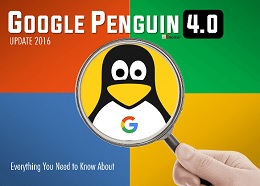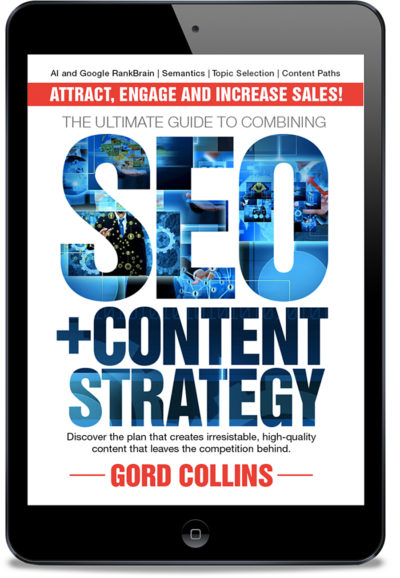What to Know to Know About Google Algorithms
What do Google search algorithm updates really mean? Will understanding them help our rankings, or is it trivial pursuit? And can an AI SEO software solution deal with it?
I can’t count the number of ranking algorithm updates that Google has launched in the past 20+ years. Some were significant changes in how they ranked pages. Others are just window dressing, played up big to generate media hype and fear in search engine optimizers, or the few who are spamming.
 There were cute names such as Penguin, Panda, Pigeon, Hummingbird RankBrain, Speed, Payday, Fred and more. They almost never seemed to affect my client’s sites much. I’d always been able to read between the lines and give Google the key, lasting signals it needs.
There were cute names such as Penguin, Panda, Pigeon, Hummingbird RankBrain, Speed, Payday, Fred and more. They almost never seemed to affect my client’s sites much. I’d always been able to read between the lines and give Google the key, lasting signals it needs.
However, today with their sometimes whimsical AI automated system, the risks to business is at its highest ever. When catastrophes happen, there may be no recourse with the company that doesn’t speak.
I used to enjoy reading Google’s algorithm patents, but then they stopped that and started issuing tons of cryptic, misleading ones. Well, the learning experience was not lost upon me.
I’m going to give you some deep insights in this post about the real algorithm and designing and optimizing copy.
Here’s the “Core Signals” that Google likes:
-
- fresh new content loaded with relevant keywords
- in-depth treatments – epic level material that people will share online
- engaging sticky content that keeps the reader on the page, and then back to Google to continue their quest
- direct return trips to your page
- mentions of related or associated topics that trusted sites also dwell on (themes)
- related keywords, stemmed variations and synonyms (latent semantics)
- keywords used within text hyperlinks
- headings which define themes and provide context
- readable content layout
- content flow that gives some sort of learning process to the reader or continuous customer experience (content funnel)
- fresh new links to your site from other trusted, topically related websites often the result of outreach and viral social media
If you get all done correctly in the right spots, you’re getting the core matters taken care of.
How Subtle is the Meanings Google Looks for?

I’ve always been into latent semantics, but Google search’s chief tech guy says lately that they don’t do latent semantic indexing. Perhaps, but if Google is ignoring exact keyword matches and they can’t understand the context or real searcher intent via related words used in the pages, how can they understand what the searcher wants? Well, that’s a question for another post.
The point is, that if you serve Google the core signals it wants, you’ll be in contention for higher rankings. If your competitor doesn’t know this stuff, the more chance they’ll mess up and trip one of Google’s AI filters or not get the ranking signals correct.
All SEO experts fail in this regard. The key is to create compelling, useful content, avoid extremes, test, learn, and ensure your keyword signal is well infused in your content. Another thing, while we’re on this SEO topic is to write to get people to share your content. This is an art too and an undervalued one.
That’s the trick of SEO copywriting — to achieve multiple objectives in one web page. If people don’t engage with your content or share it online, it won’t rank well.
Much aDo about Nothing
They impact of most of Google’s algo updates is minimal. If you’ve been doing a good job of using traditional copywriting and SEO techniques, you would still rank at the top. Truthfully, good old backlinks can compensate for almost any on-site failure. It’s why the big publishers can write a 200 word trivial and disposable news article and get top rankings. The ranking power of their backlinks brought in Trust factor and pagerank, and that’s all they needed.
But without lots of backlinks, up against big money competitors, how Google processes pages is good to know.
Does Google Really Use True Artificial Intelligence?
There is politics involved in how they speak to the world about search engine rankings. And when Google announces their use of artificial intelligence in rankings, we’re not sure if it’s a joke or a revolution. It’s the same with AI marketing software providers too. They overstate it. Since AI insinuates learning, we get a little doubtful about the depth of that learning.
Rankbrain was an improvement on their earlier attempt called Hummingbird to use AI to improve search quality. They basically improved how they processed “quality documents” to separate them from all the spammy content on the web.
What these updates did more, was to filter out some spam.
They became more sophisticated about the intent of the content and whether it was credible material on whatever topic. With Rankbrain™, introduced a few years ago, they had a process to refine what the other algorithm components indicated. And Rankbrain™ could simplify long keyword phrases to understand what was really wanted.
They Only Want Specific, Highly Useful Content
And what is specific and highly useful content? Well, this is thing that a professional search engine optimizer infuses into the content without even thinking about it. Relevance and quality have to be proven many different ways.
Unfortunately, Google’s ranking algorithms keep cutting down the number of pages they consider showing for a search. Although Google boasts about trillions of documents spidered, it only shows a very minute number of them in search results. You have to be expert at this.
With each one of these updates, more content gets left out of the results. And even if your content is excellent, it might still lack signals Google wants. That means that although you might rank in the top ten, Google won’t show your page. It’s like Rankbrain or other algorithms plucks it right out. And now your site is invisible.
We need to ensure we have the right topics, themes and specific keywords present. We may need to link to trusted sources on the topic too.
And Along Came BERT
The latest improvement in Google’s attempt to understand user intent or search meaning is called BERT.
It stands for Bidirectional Encoding Directional Transformer. It lets Google look at a sentence or query from different directions and perhaps pivot on single keywords in a sentence. It’s a small improvement. The point of it though is that Google is examining your copywriting to understand your intent and match it to users needs.
They’re using artificial intelligence techniques called natural language processing to let the AI unit understand just like a human would. With BERT and RankBrain, you have the ability to do some sophisticated SEO things with your copywriting and actually get an advantage.

Here’s a perhaps over simplified example: best vacation deals Costa Rica. It seems a no brainer, the searcher probably wants the cheapest one week resort vacation with airfare included. But there’s actually a lot of questions because the searcher might be anyone of a thousand different people.
If the searcher types “best vacation deals Costa Rica” you have to break the phrase down many different ways. Best can be interpreted as top, free, price, popularity, safety, reviews, recommended, etc. Vacation could represent things such as experience, adventure, mountains, jungle, seaside, volcanos, food, amenities, entertainment, beaches, resort, eco-tours, etc. Deals could mean family of 4, all inclusives, packages, airfare, hotels, bids, prices, comparisons, discounts. And Costa Rica could mean Central America, nature, Belize, Puntarenas, Guanacaste, Jaco, or San Jose.
So what does your target consumer mean? They could want just about anything in this vacation purchase. As a pro SEO optimizer, you could focus on your key offerings in one page, and weave all of these potential topics and end goals into the copy of another page.
This way, you get your targeted vacation buyer, and you get a whole bunch more travelers too. You can never have enough traffic and leads and people type in the strangest search keywords.
Just because you can optimize for the exact user intent you need to, doesn’t mean you should neglect other opportunities. Consider too, that you may not be able to earn enough of one specific customer. All the other keywords listed above may come into play as Google assesses whether your page is good enough.
The BERT update just encourages us to look at what we mean in a sentence.
Here’s Britney Mueller of MOZ explaining BERT.
The whole point with AI and these latest quality algorithm checks is that you need to ensure your wording answers what the searcher is typing in and meaning. Google’s getting nitpicky!
You have to consider the obscurity about your topic and then refine your copywriting so it clarifies around the users exact intended information quest.
I often use a word cloud and a tree process to illuminate ideas, topics, goals, details that I could miss. It makes me think of the end user and what their real goal is. It helps to zero in on the essentials and find all sorts of outliers. If the user types in “best software for 2020,” that’s vague and they could mean a lot of things. It could be used by a lot of tech people, workers, business owners, bloggers and journalists. I may want to target all of them.
It pays to painstaking and thorough with SEO. It’s so competitive, and you’re up against these mega million budget companies. This is how you slay the Goliath.
We have to assume that Google’s AI usage is going to improve on understanding context and user intent. It’s an exciting journey!
If you need to hire a consultant who can who can build expertise in your industry, advise and produce top notch content, I can help. I’ll explore and get into the minds of your prospects and customers, as part of my expert SEO services. I’ve served agencies and business owners in San Diego, Los Angeles, San Francisco customers along with clients in London UK, Russia, China, and Canada over a 22 year span.
Even SEO experts are anticipating the arrival of useful AI SEO and AI copywriting software platforms. At this point, they are at best organizational tools. There’s no replacing experience, intuition, and strategy that experts with experience provide.
As more Google algo updates appear, the core algorithm ensures that copy that attracts, engages, and directs visitors is what Google likes. When you’ve captured big pagerank and trust factor into your site, these SEO copywriting strategies can be very powerful.
It’s like to like writing for a major newspaper or University or corporations, where your weakest stuff still gets to the top of Google’s search results. Their poor SEO and copywriting practices thankfully give us all a chance to rank too.
AI Marketers provides unique content, SEO, social media, PPC, and funnel optimization services for software companies, manufacturers, hotels, recruiters, moving companies, publishers, mountain bike manufacturers, sports equipment retailers, building supplies companies, window and door companies, Realtors, investment companies, IT companies, clean energy, consumer products, branding consultants and many more.
Begin your market leader journey with a digital marketing performance review.
Marketing Software | SEO Expert | Advanced SEO | SEO Artificial Intelligence Platform | SEO Software | SEO Company San Diego | AI Marketing Tools | Marketing Company San Diego | Marketing Agency Toronto | SEO Agency Boston | SEO Los Angeles | What is AI Marketing? | AI Stock Prediction | Gord Collins







